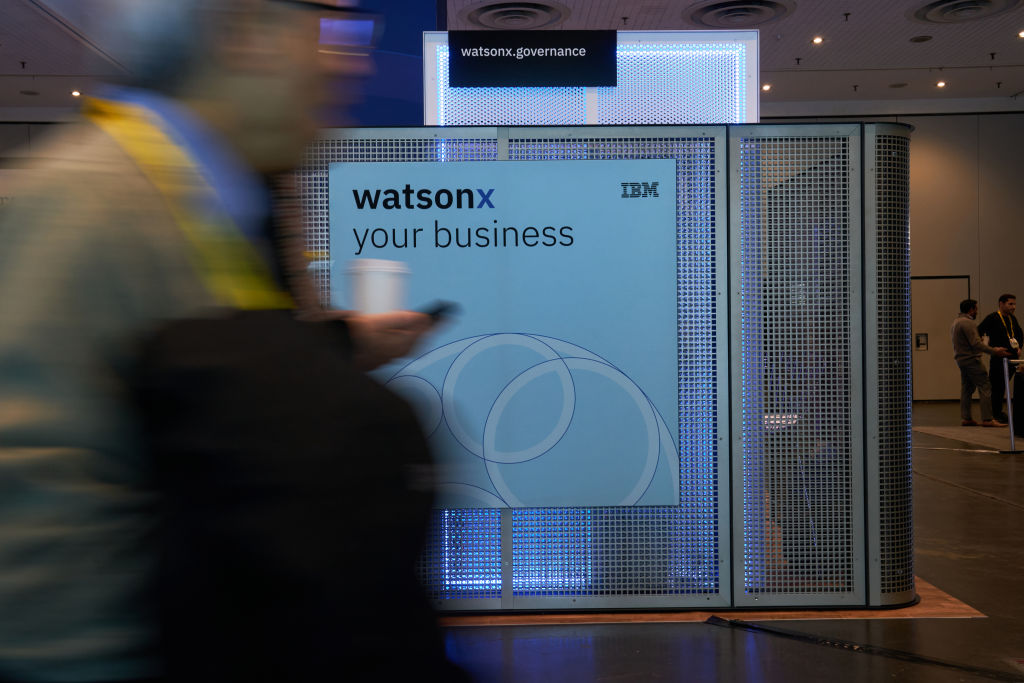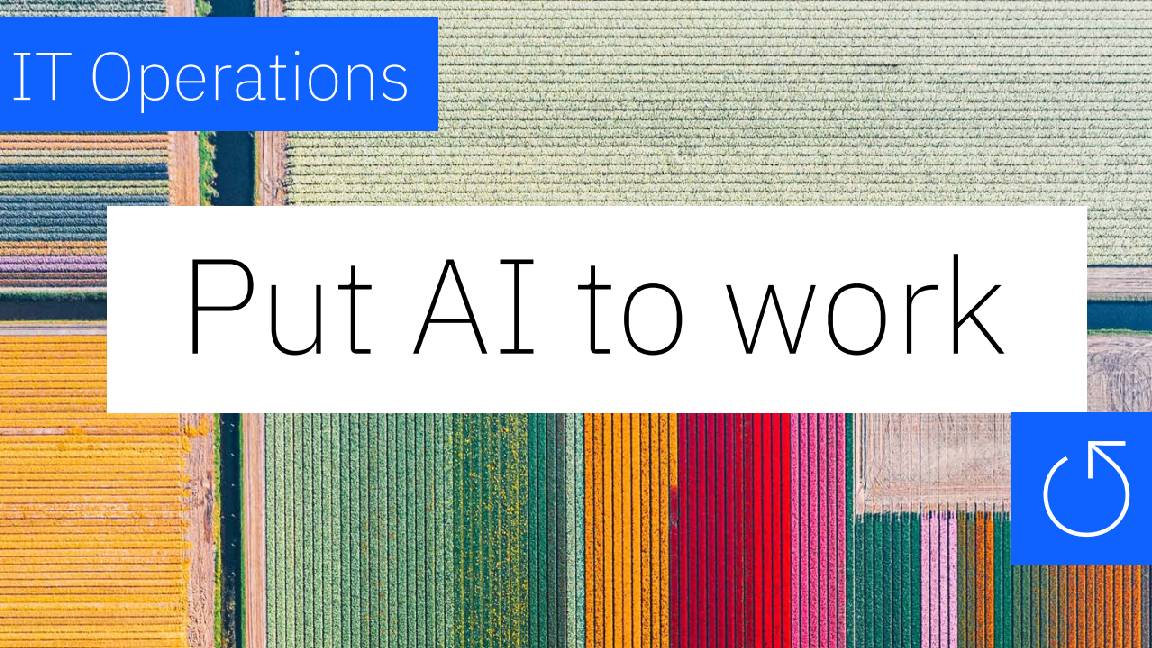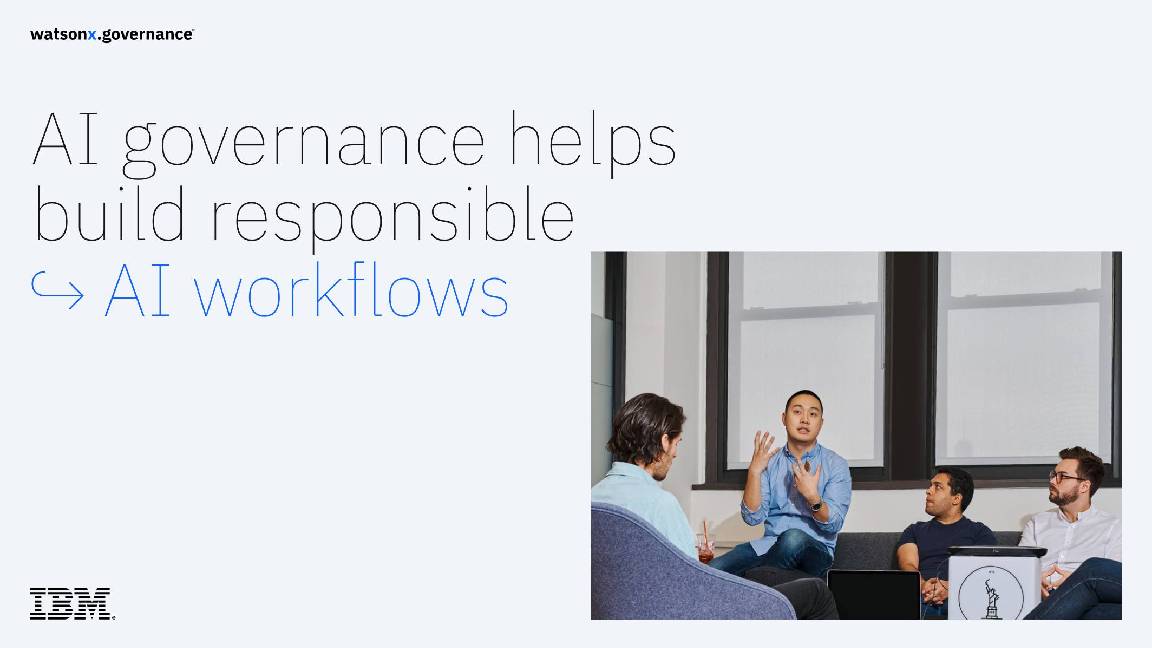IBM, GSMA collaborate on generative AI program designed to up-skill the telecoms industry
New training program aims to help mobile operators understand the potential for generative AI across their businesses


IBM and mobile industry body the GSMA are launching a training program to support the development of generative artificial intelligence (AI) skills across the telecoms industry.
The new GSMA Advance's AI Training program aims to give telco leaders the skills and knowledge needed to help them get the most out of generative AI technologies, and features Watsonx, IBM's AI and data platform.
IBM said the training program will cover topics ranging from fundamental AI principles through to specialized generative AI applications in telecoms. These sessions will take place at IBM offices in Dubai, London, Mexico, New York and Seoul this year. An online training program will also be available in multiple languages.
A digital version of the program will be available to help tackle the business strategy and technology basics of Generative AI and uses watsonx to deliver hands-on training to equip architects and developers with practical AI know-how.
A second program, the GSMA Foundry Generative AI program, will provide members of the industry group with access to IBM's watsonx. The aim is to help telecoms industry players explore industry-specific use cases of generative AI, looking at improving cost leadership, revenue growth and enhancing customer experience.
Research from IBM accompanying the announcement found that 40% of telecoms firms surveyed are exploring or experimenting with generative AI, and 45% have accelerated the rollout of AI.
Separate research from GSMA Intelligence found that 56% of operators surveyed are actively trialing generative AI solutions – at a rate higher than any other priority technology – but adoption is less widespread in mid-sized and smaller operators surveyed.
Get the ITPro daily newsletter
Sign up today and you will receive a free copy of our Future Focus 2025 report - the leading guidance on AI, cybersecurity and other IT challenges as per 700+ senior executives
More on generative AI use cases
AI can provides the telecoms industry with huge opportunities to launch new services, improve connectivity and customer experience said Alex Sinclair, Chief Technology Officer at the GSMA.
"However, it's critical that AI is democratized to ensure that all parts of the connectivity industry and their customers, wherever they are in the world, benefit. Bringing operators access to AI tools and knowledge, alongside the necessary skills, access and training, is key to achieving this," he said.
Research by Amazon Web Services last year found that integrating generative AI into a customer-facing chatbots is part of the first wave of AI adoption by telcos; 92% of survey respondents said they were highly likely to implement generative AI chatbots, and among those, 63% said this was already production.
RELATED RESOURCE

Discover what to look for in an AI platform
However, there are likely to be many opportunities for telcos to use generative AI beyond this. For example, AWS said, because generative AI can ingest data from manuals that operators rely on when installing network element, when combined with chatbots, this data can provide interactive guidance based on prompts to speed up and simplify installation tasks.
Alternatively telecoms operators could train large language models to understand network behaviour to help with planning capacity or to help spot potential problems ahead. Ericsson recently detailed some of the areas of potential development for AI in telecoms, such as to support customer incident management, from using raw log data such as alarms or program traces to help detect incidents through to drafting texts for customer support requests or trouble reports.
It said generative AI could be used network planning and deployment and configuration of network nodes, and for jobs like generation of estimated radio maps even with sparse data, and estimating cell load and traffic routing scenarios - as well as malware and rogue device detection.
Steve Ranger is an award-winning reporter and editor who writes about technology and business. Previously he was the editorial director at ZDNET and the editor of silicon.com.
-
 Should AI PCs be part of your next hardware refresh?
Should AI PCs be part of your next hardware refresh?AI PCs are fast becoming a business staple and a surefire way to future-proof your business
By Bobby Hellard
-
 Westcon-Comstor and Vectra AI launch brace of new channel initiatives
Westcon-Comstor and Vectra AI launch brace of new channel initiativesNews Westcon-Comstor and Vectra AI have announced the launch of two new channel growth initiatives focused on the managed security service provider (MSSP) space and AWS Marketplace.
By Daniel Todd
-
 Put AI to work for IT operations
Put AI to work for IT operationswhitepaper Reduce the cost and complexity of managing hybrid applications
By ITPro
-
 AI in the retail industry is spreading beyond the IT department
AI in the retail industry is spreading beyond the IT departmentNews AI has become a strategic imperative for retailers, delivering marked productivity gains
By Emma Woollacott
-
 Maximizing contact center operations with generative AI assistants backed by responsible AI principles
Maximizing contact center operations with generative AI assistants backed by responsible AI principleswhitepaper Reduce the cost and complexity of managing hybrid applications
By ITPro
-
 IBM just launched powerful new open source AI models – here’s what you need to know
IBM just launched powerful new open source AI models – here’s what you need to knowNews Available under the Apache 2.0 license, IBM's Granite 3.0 models are trained on enterprise data and can out-perform the competition
By Emma Woollacott
-
 Achieving business outcomes with generative AI
Achieving business outcomes with generative AIWebinar Take your hybrid cloud journey to the next level with generative AI
By ITPro
-
 Wimbledon’s new Catch Me Up AI feature promises to keep fans up to date at the tournament – after it irons out some of the wrinkles
Wimbledon’s new Catch Me Up AI feature promises to keep fans up to date at the tournament – after it irons out some of the wrinklesNews The latest feature to come out of IBM’s partnership with Wimbledon will keep fans engaged from the early stages right through to the final with dynamic player insights
By Solomon Klappholz
-
 AI demands new ways of data management
AI demands new ways of data managementwhitepaper The data leader’s guide for how to leverage the right databases for applications, analytics and generative AI
By ITPro
-
 AI governance for responsible transparent and explainable AI workflows
AI governance for responsible transparent and explainable AI workflowswhitepaper Build greater trust in your AI
By ITPro
